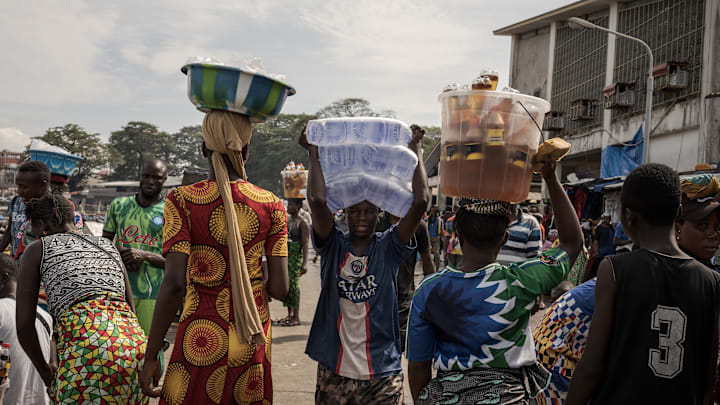The Colonization of Africa and Its Lasting Impacts

The Berlin Conference of 1884-1885 marked the formal beginning of the Scramble for Africa. During this conference, European powers, including Britain, France, Germany, Portugal, and Belgium, negotiated and formalized their territorial claims in Africa, often without regard for existing ethnic, cultural, or political boundaries. This division of Africa was driven by the desire for access to valuable natural resources, new markets for European goods, and strategic geopolitical advantages.
The economic impacts of colonization were significant and multifaceted. European powers exploited Africa's vast natural resources, including minerals, rubber, ivory, and agricultural products, to fuel their industrial economies. The introduction of cash crops, such as cocoa, coffee, and cotton, transformed traditional agricultural practices and economies, often to the detriment of local food production and subsistence farming. The forced labor systems and exploitation of African workers were common, leading to severe economic inequalities and social disruptions.
Colonization also brought about profound political changes in Africa. Traditional governance structures were often dismantled or subordinated to colonial administrations, which imposed European legal and political systems. The colonial boundaries drawn by European powers frequently ignored existing ethnic and cultural divisions, leading to tensions and conflicts that have persisted long after the end of colonial rule. The legacy of arbitrary borders and centralized colonial administrations contributed to the challenges of nation-building and governance in post-colonial Africa.
The social and cultural impacts of colonization were equally significant. European missionaries and colonial administrations sought to impose Western values, education systems, and religions on African societies. While this led to the spread of Christianity and Western education, it also resulted in the erosion of traditional cultural practices and social structures. The introduction of Western legal and social norms often clashed with indigenous customs, leading to cultural dislocation and identity crises.
The resistance to colonial rule was a constant feature of the colonization process. African leaders and communities employed various forms of resistance, ranging from armed uprisings and rebellions to passive resistance and negotiation. Figures such as Samori Touré in West Africa, Menelik II in Ethiopia, and the Mau Mau movement in Kenya exemplified the diverse strategies employed by Africans to resist colonial domination. Despite their efforts, most African territories remained under European control until the mid-20th century.
The decolonization process, which began in earnest after World War II, marked the end of formal colonial rule in Africa. The struggle for independence was characterized by both peaceful negotiations and violent conflicts. Countries such as Ghana, under the leadership of Kwame Nkrumah, achieved independence through political negotiations, while others, like Algeria and Angola, experienced protracted and bloody wars of liberation. The wave of independence movements culminated in the rapid decolonization of Africa in the 1960s and 1970s.
The legacies of colonization continue to shape contemporary Africa. The economic structures established during the colonial period, characterized by the extraction of raw materials and reliance on cash crops, have left many African economies vulnerable to global market fluctuations and external dependencies. The political boundaries and centralized governance models imposed by colonial powers have contributed to ongoing conflicts, ethnic tensions, and challenges in state-building and governance.
In recent decades, African countries have sought to address the legacies of colonization through various means, including regional integration, economic diversification, and efforts to promote social and cultural revival. Organizations such as the African Union (AU) and initiatives like the African Continental Free Trade Area (AfCFTA) reflect the continent's efforts to foster unity, cooperation, and economic development.
In conclusion, the colonization of Africa was a transformative period with profound and lasting impacts on the continent's political, economic, and social landscapes. The exploitation of resources, imposition of arbitrary boundaries, and cultural disruptions have left enduring legacies that continue to shape Africa's development. Understanding this history is essential to addressing the challenges and opportunities facing contemporary Africa and fostering a more equitable and sustainable future.